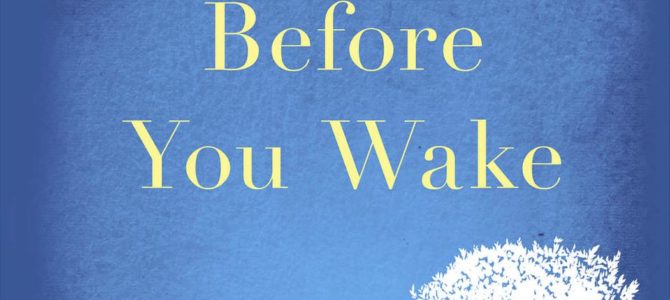
Several years ago, I wrote an article for this site about the steps all parents should take in the event of their untimely death. In it, I suggested somewhat mundane goals like “have life insurance” and “write a will and assign guardians.” But I also gave advice for parents whose children will be left adrift: write down recipes, write down family stories, print your pictures and make them into albums.
In his new book Before You Wake: Life Lessons from a Father to His Children, political commentator Erick Erickson does just this. Faced with several brushes with death over the last year, Erick and his wife were forced to face their own mortality and entertain the possibility that they may die before their children wake. In response to their health crisises, Erickson wrote a viral piece dedicated to his children, which was then turned into a book. Before You Wake is a unique book in that it has an audience of just two individuals: Erickson’s two children. So why would reading Erickson’s book appeal to a wider audience than just his family?
The idea of writing an entire book for my children left behind is one that has occurred to me on more than one occasion. That’s not just because I’m morbid (though I am) but because I have experience—twice over—being the child left behind after a parent’s death.
When I was 16 years old, I took my mother off life support after she battled an autoimmune disease for two decades, and every possible complication thereafter. At 19, I got a call late one night after my first week on campus that my father had killed himself sometime that morning. Each parent left behind different parts of themselves, and prepared me for their deaths in different ways (though my mother did far more than my father), but both also left me wanting more. What could they have done to better prepare me for a world without them? Erickson’s book is the blueprint.
Memories as Lessons
Before You Wake is basically a memoir of Erickson’s life thus far, which in itself is quite interesting. Erickson grew up in the Middle East (his father was stationed there with his company) then became a prominent political commentator by happenstance. These aren’t stories for storytelling’s sake, however. Each memory, even the ones from childhood, taught a lesson that Erickson carried with him until adulthood.
Could there have been fewer about his childhood? Honestly, yes. As a parent, however, it behooves us to remember just how blank the slate is for our children and that these experiences, however seemingly mundane, teach our children far more than we may imagine they do. As I’ve learned as a parent with a colorful vocabulary: they’re always listening, even when we don’t want them to be.
On the heels of the last presidential election, Erickson also shines a light into what it was like for many conservatives who decided they could not, and would not, support President Trump’s nomination for the Republican party or in his race against Hillary Clinton. He writes:
The pressure to support President Trump was overwhelming. The number of people lining up to take my radio job shocked me. They were convinced I would lose it. One local host emailed my boss the day after the election to make sure our station knew he was available.
I was terrified. If my show got canceled, I would lose my health insurance. If I lost my health insurance, how could I pay for my wife’s cancer treatment?
This was a question that faced many in conservative media in 2016; the pressure was real and individuals really did lose their jobs due to their refusal to support President Trump.
Death Sucks
The book isn’t just Erickson tooting his own moral horn, but is a remarkably candid evaluation of his own personal failings as well. Like we all do, Erickson has said and done things he isn’t proud of, and like few do, Erickson committed these offenses on the national stage, which were then preserved in perpetuity online. We don’t want our children to know our flaws, but for them to see us as complete human beings, eventually they must. Erickson needed his children to hear his perspective, lest they accept Google search’s version of events.
The morning after my mother died, I stumbled into the kitchen of my best friend’s house, where I was staying. I ran into her aunt, who happened to be staying with them that week. She told me something I’ve never forgotten: “This sucks.” There’s not much else to say when someone dies, and it’s something I tell friends and family when they lose someone near and dear. I don’t say they’re in a better place, or that they are with God now; no, I recognize their pain for what it is: a gaping, bleeding, and raw hole. We want to somehow make it better, for someone to have the answers, but nobody does. Death just sucks.
More than a decade past my parents’ deaths, I’m able to see those events in more perspective. In his book, Erickson explains “We need the valleys to gauge the peaks.” That is a lesson Erickson hopes to impart on his children after his death (and as we say in Jewish tradition, may he live to 120), and it is one I hope to impart to mine. Death sucks, but it has a purpose, as does everything in life. In order to bring as much purpose to my life (and death) as possible, I hope to leave behind to my children something like Erickson has. His book is a reminder to parents that during the everyday monotony of life, we should all spend some time thinking about how to do that for our own children.









